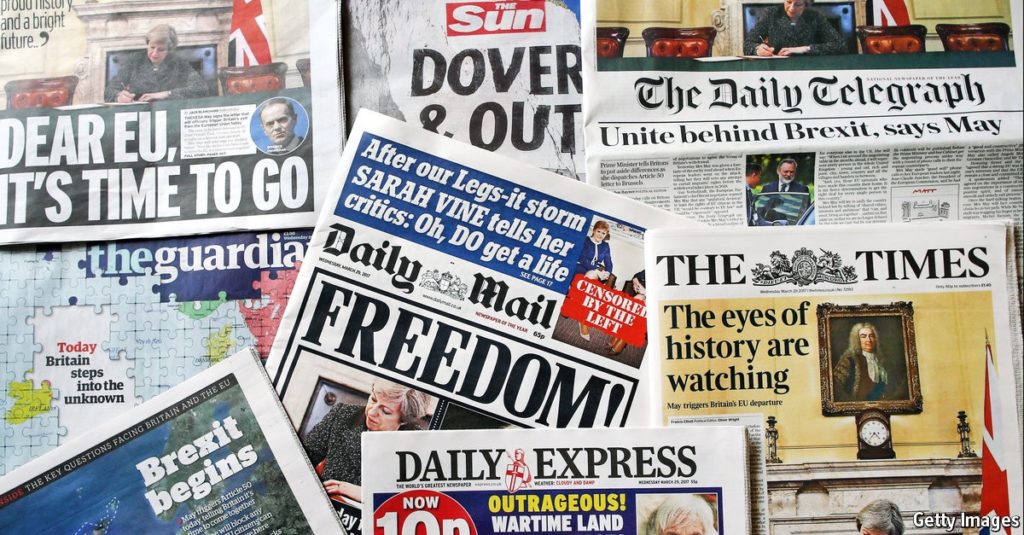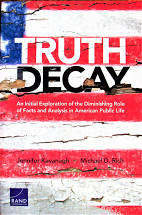
In working toward an answer to the above question, we have established that news organizations have become increasingly biased in their reporting and thus less trusted by the public at large. Political agendas leaning left or right result in a slanting of the information provided to sway our opinion in a direction desired by those running those media outlets.
The goal of this final post on this topic is to address what this accusation is really saying and to see just how much truth there is to it. To do so, let’s take a look at the source.
Rush Limbaugh
It was on a recent broadcast of this conservative talk show host that I heard him make this declaration. It was probably in October of this year. Chances are he’s been saying this for a long time and that it has been echoed by other conservative talking heads. On Limbaugh’s website, I found the text of one conversation he had with a caller on September 25, 2020. The title for this on the website is “We’re in the Midst of a Violent Revolution Started by the Left, Not by Us!”
Limbaugh refers to New York Times columnist Thomas Friedman, a three-time Pulitzer Prize winning writer, and an interview he did with Anderson Cooper of CNN. He was asked by Cooper about whether he was surprised that the president said he might not be accepting of a peaceful transfer of power if he lost the election. Friedman said “it’s stunning, but it’s not surprising.” He went on to say that we have a president saying he will either win the election or delegitimize the election. Limbaugh questioned the sanity of the journalist, claiming Trump didn’t say those things and that Hillary Clinton had actually suggested to Biden that he never concede if he lost the election.
Limbaugh continued, stating that the mainstream media doesn’t understand how it is perceived. “I’ll tell you how you’re seen. You’re not seen as fair. You’re not seen as objective. It isn’t even biased. It’s so far beyond bias what you people are. You have abandoned journalism. You have all become activists who exist for one reason, and that is to defeat, however you think it’s necessary, Donald Trump. And journalism obviously is not enough to get that done, so you’ve had to become activists.”
It has been a longstanding complaint of Limbaugh and other conservative talk show hosts that the media is liberal and doesn’t offer balanced coverage of world affairs, international or domestic. I hadn’t heard them make this charge, though, that journalism has simply been abandoned for the sake of furthering their agenda. Limbaugh and the others probably consider themselves journalists who are giving us the truth. Fox News trumpets their “fair and balanced” coverage. The approach by all of these conservative media toward journalism has long been called into question for its lack of objectivity.

Where Do We Stand?
While I do believe there are valid grounds supporting claims of biased journalism on both sides and plenty of reporting that is plain sensationalism, I think it’s going too far to say journalism has been abandoned.
A friend of mine who is a writer and publisher went on a cruise with an organization of journalists shortly after Trump was elected. There was a great deal of concern about his attitude toward the press. They feared for the direction of the country and for their freedom to express the truth as they saw it. While they may have had an agenda that leaned left and even openly favored one side over the other, there was still an intention on the part of these journalists to use some degree of truth and honesty in giving us the news.
I realize now that Limbaugh was targeting journalists for their reporting of political and social events, not necessarily all of what goes on in the world. Local news is reported and investigated with far less agenda in my opinion. Coverage of non-political matters such as philanthropy or sports or human interest stories or daily weather requires no slants, so they are usually straight journalism. No opinions needed. Still, even in the political and social arena, I believe a great deal of journalistic reporting occurs without commentary.
There must be many examples of this in today’s world. The COVID-19 pandemic has been politicized and there are many opinions about it from many sides, but I see in local news a reporting of the facts (as they understand them) based on official numbers. Field correspondents covering war and weather catastrophes are out there providing an accurate picture of the events they’re covering. Investigative reports into hallowed organizations such as the Catholic Church, the Boy Scouts of America and the Red Cross have given us truths that needed to be revealed when no one wanted to hear them. This is journalism.
Don’t Give Up
May the pendulum swing back the other way. We need more unbiased presentation of the news, less agenda-driven journalism. We could certainly use more information on how to build unity, less divisive commentary. But journalism has not been abandoned and we should not abandon a pursuit of the truth. We should demand it.






